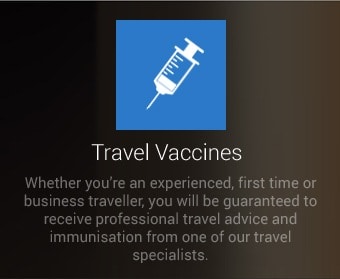Vaccines |
Chickenpox |
Chickenpox
What you need to know about chickenpox.
Chickenpox is a highly contagious disease caused by a virus called varicella-zoster.
The virus is usually spread through direct contact with blisters that form on the skin and through the air, by coughing or sneezing
Infected persons often spread Chickenpox even before the rash appears.
They are considered contagious from two days before the rash appears until all the blisters have scabbed over. Children may be infected without you even realising it.
Vaccination
In the UK the NHS does not offer free vaccination unless the child is 12 years old and has not had Chickenpox. At Armada Travel Clinic we offer the Chickenpox vaccine privately,
so that your child can avoid the discomfort and scarring that Chickenpox causes. The Vaccine is suitable from 12months. Two doses of Chickenpox vaccination are required 4 – 8 weeks apart.
Chickenpox vaccination fully prevents infection in 98% of cases. The minority who do not achieve full protection will experience milder symptoms, with far fewer spots and shorter recovery time.
Risk Assessment
People who’ve been vaccinated against Chickenpox are usually immune to the virus. The same is true of anyone who has had Chickenpox in the past.
People at greatest risk of contracting Chickenpox include anyone who hasn’t been vaccinated or who has never had the disease.
Your risk of catching Chickenpox is higher if you also work in or attend a school or child care facility or live with children.
Complications
Chickenpox is normally a mild disease. But it can be serious and can lead to complications, especially in these high-risk groups:
- Newborns and infants whose mothers never had chickenpox or the vaccine
- Adults
- Pregnant women
- People whose immune systems are impaired by medication, such as chemotherapy, or another disease
- People who are taking steroid medications for another disease or condition, such as children with asthma
- People with the skin condition eczema
A common complication of chickenpox is a bacterial infection of the skin. Chickenpox may also lead to pneumonia or, rarely, an inflammation of the brain (encephalitis), both of which can be very serious.





